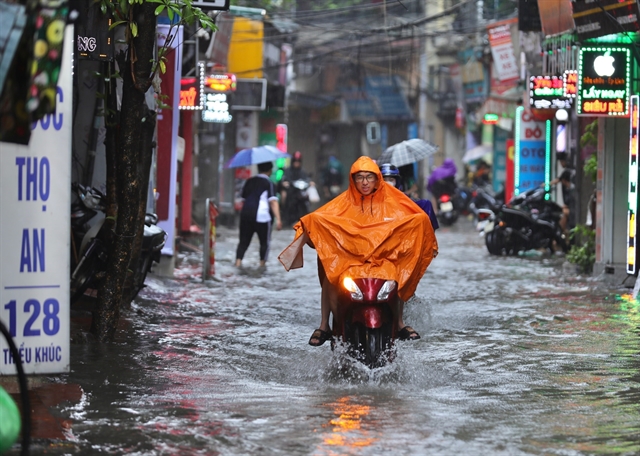 Expat Corner
Expat Corner

Seán Nolan
HÀ NỘI I've seen no official statistics to back this up, but from a purely anecdotal point of view, I'm sure this has been a particularly wet summer in Hà Nội.
Given that, on a global scale, July was the hottest month ever, I can't help but ponder an undeniable truth: climate change isn't a distant, ominous cloud on the horizon, a concern for the future that can still be reverse – it's here.
Việt Nam recorded its highest-ever temperature of 44.1 degrees Celsius in May and the Pacific region appears to be the worst affected.
California was battered by a hurricane (and an earthquake simultaneously), Hawaii suffered the deadliest American wildfires in over a century, and the mercury danced above 52 degrees Celsius in China.
 |
| Flooding on Triều Khúc Street in Thanh Trì, Hà Nội, last weekend. VNS/VNA Photo Hoàng Hiếu |
These stories of unprecedented weather events aren't just news tickers designed to fill column inches on a slow day; it's becoming increasingly obvious even to the biggest-climate naysayers that they are evidence of our planet's feverish state.
Still, some will dismiss these events as mere blips on the radar, hoping rather than believing that normalcy will return soon.
However, climate change isn't giving us the luxury of gradual transition; it's bursting in through the front door, muddy boots and all.
Of course, if you've got this far through this column, you might expect me to be able to provide an ointment, a solution to the crisis - "Plant a tree" or "buy an electric vehicle".
However, it's becoming clear that such small, individual actions would be akin to throwing a glass of water on a factory fire.
The world seems to have reach a tipping point from which there will be no return.
Action now should not be focused on prevention but on adaptation.
The world, Việt Nam included, needs to take sober stock of how prepared we are for extreme weather and natural disasters.
Developing countries are at significant risk as climate change continues. Việt Nam faces risks due to its long coastline, high population density along deltas, and agricultural dependence.
Rising sea levels threaten coastal regions, and salinity intrusion harms rice paddies. Extreme weather events, like typhoons and floods, impact infrastructure and livelihoods. Adaptation measures are crucial to mitigate these vulnerabilities.
The record tempature in Việt Nam followed by a wet summer, the hurricanes in California, the wildfires in Hawaii, and China's heatwave are not isolated incidents but interconnected signs of the times.
The era of climate change isn't coming; it's here, and it is irreversible.
The 'new-normal' was a phrase we all came to loathe during the COVID-19 pandemic. Climate change's new-normal is here now, and there's no going back. VNS